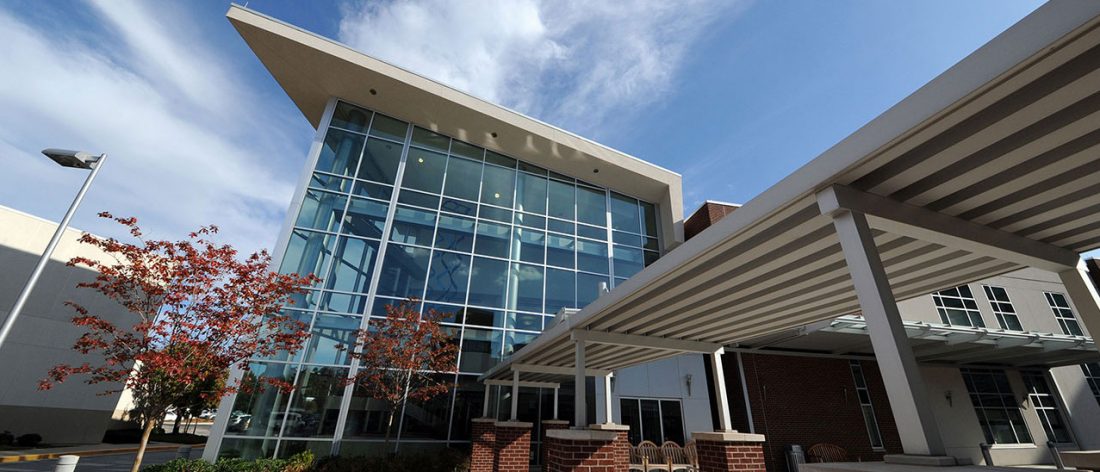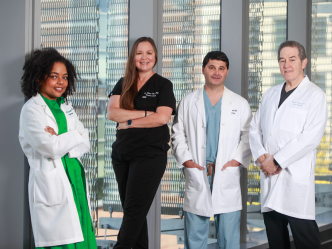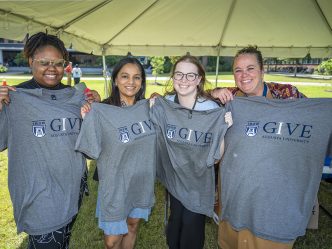Donald Edwards has always been a go-getter, living life on his terms and spending quality time with his family. However, all of that quickly changed last year after he developed an illness that would lead him to get a second opinion at Augusta University, taking him from a hospice care diagnosis to improving his quality of life.
Edwards’ health scare began last fall when he began having trouble swallowing and breathing during a family dinner. He tried not to think too much about his discomfort until the pain worsened, and his wife Debbie drove him to an emergency room in their hometown of Statesboro, Georgia. It was then Edwards and his wife received the news that he had stage four esophageal squamous cell cancer.
“I was shocked and I knew it was serious,” said Edwards. “I couldn’t believe this was happening to me, but I was ready to do whatever it took to save my life.”
Edwards underwent several tests while at the emergency room, including an upper gastrointestinal endoscopy and CT Scan, which showed cancer had eroded a hole in his esophagus, allowing particles to enter his windpipe, or trachea. If doctors did not close the hole, Edwards’ airway would be filled with food material, resulting in chronic pneumonia or infection.
Doctors also concluded Edwards would not be able to receive cancer treatment until the hole in his esophagus was closed, but that was a risky procedure physicians were not willing to do. Their only option for Edwards was to begin hospice care, but he was not ready to give up.
“The outcome of this situation didn’t look good for me, but I was determined to live,” said Edwards.
Before giving up all hope, Edwards decided to get a second opinion at Augusta University Health, and was introduced to Dr. Shaheen Islam, chief of the Division of Pulmonary and Critical Care Medicine in the Medical College of Georgia.
“I knew I had made the right choice about coming to Augusta University when I met Dr. Islam, because of the compassion and determination he had to see me live,” said Edwards.
Dr. Islam, a national leader in interventional pulmonology and an expert in lung cancer and critical care, is no stranger to high-risk cases.
“I had seen similar cases to Edwards’ condition and I wanted to do something to help him, even if it only meant extending his quality of life,” said Islam.
In June, Islam performed a bronchoscopy to place a stent in Edwards’ trachea, which closed the hole in his esophagus. This procedure not only improved Edwards’ quality of life, but also made it possible for him to begin receiving chemotherapy and radiation.
Edwards began receiving treatment at the Georgia Cancer Center in July and was placed under the care of Dr. Asha Nayak-Kapoor, associate professor in the Division of Hematology and Oncology, and Dr. Stephen Ramey, assistant professor in the Department of Radiation Oncology in the Medical College of Georgia.
After several rounds of chemotherapy and radiation, Edwards completed his cancer treatments in September, with results showing he is responding well to treatment.
“I am grateful for the bravery and expertise of Dr. Islam, because his efforts allowed Mr. Edwards to receive the cancer treatment he needed to combat his illness,” said Dr. Nayak-Kapoor. “I am pleased with how Mr. Edwards is responding to treatment and I am honored we could be a part of his health care journey.”
Edwards continues to come to the medical center every month for Islam to check his stent. However, his prognosis is positive and he says he is grateful for care he has received at Augusta University.
“Without the stent, I would have never been able to get the necessary care I needed to handle the cancer that caused the problem in the first place,” said Edwards. “I feel like I have my life back and I’m grateful for the care I have received at Augusta University.”
 Augusta University
Augusta University




